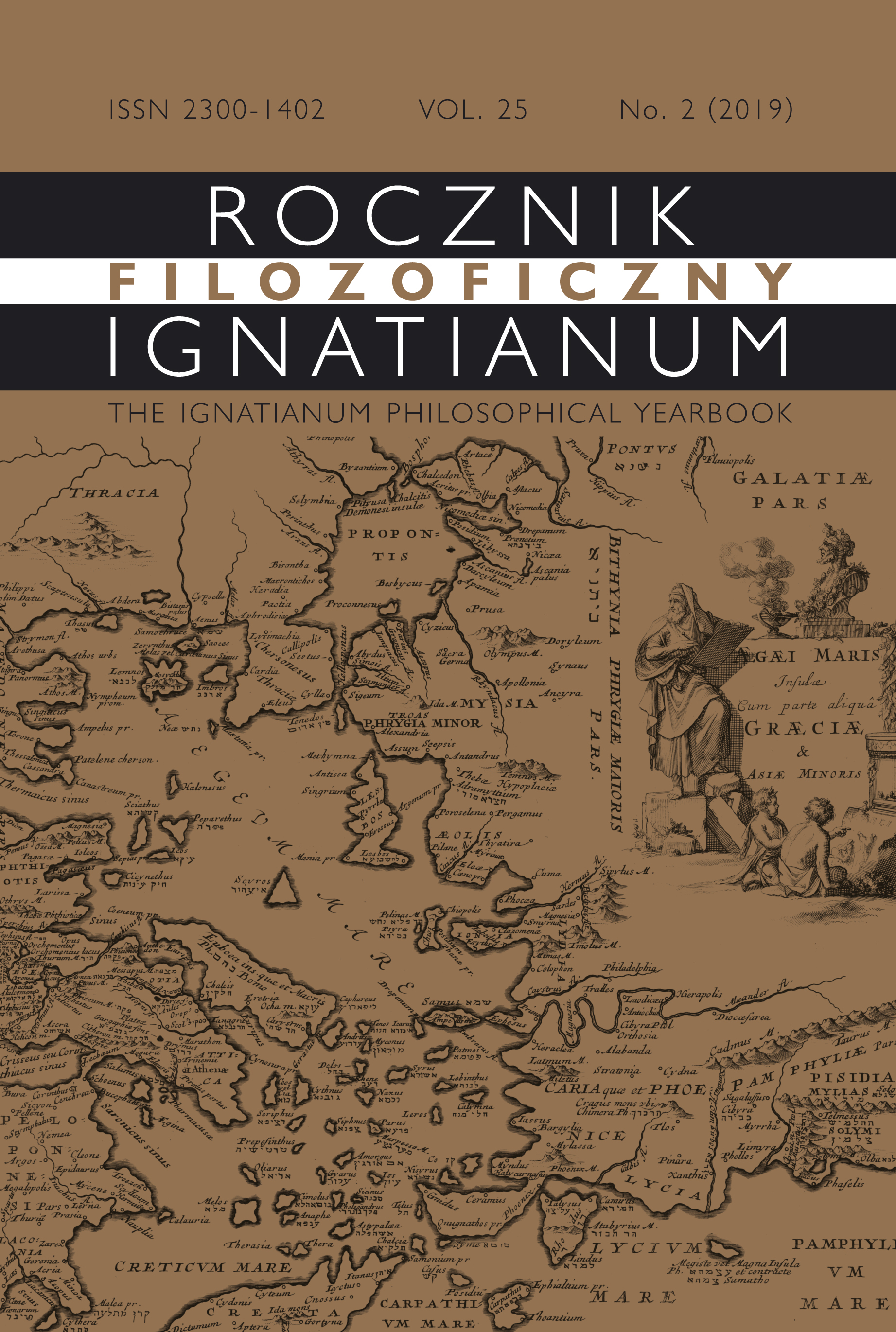Legal, Moral and Ethical Aspects of the Interwar Debate over the Application of the Death Penalty in Poland
Abstract
This article aims to present polemical exchanges over capital punishment that were conducted in interwar Poland. By using the analytical method and the source texts found in the press and the minutes of the Codification Committee, the author wants to trace the evolution of views on the death penalty and its usefulness in the state policy. The opinions on the subject differed considerably which was common not only for the interwar period. Back in the 19th century, when the first statements on capital punishment had been published in newspapers, they had ended with completely different conclusions. Advocates for the abolition of the death penalty had emphasized first of all its ineffectiveness as well as the doubts of a religious and moral nature, which had led to a conclusion that the state could not take away a person’s life. Whereas supporters of the death penalty had believed that, in view of the low level of civilisation development of individual communities, giving up the possibility to impose the death sentence could have contributed to an uncontrolled rise in crime rates. They had also emphasized that public opinion demanded the retaining of capital punishment and acting against it would have resulted in various manifestations of public unrest. The death penalty had not been abolished in Poland during the interwar period but the exchange of arguments during those years had laid the foundations for the future changes in that area. They occurred at the end of the 20th century.
References
„Die Todesstrafe in Oesterreich von Professor Franz v. Holtzendorff ”, Gerichts halle. Organ für Rechtspflege und Volkswirtschaft 1 (1876).
„Kara śmierci w projekcie kodeksu karnego”, Prawnik 2 (1876).
Komisja kodyfikacyjna RP. Sekcja Prawa karnego, t. I, z. 1 (Warszawa–Lwów: Wydawnictwo Urzędowe Komisji Kodyfikacyjnej, 1921).
„Przegląd tygodniowy”, Prawnik 1 (1876).
„Przegląd tygodniowy”, Prawnik 2 (1876).
Rozporządzenie Prezydenta Rzeczypospolitej z dnia 11 lipca 1932 r. Kodeks karny, Dz.U.RP z 1932 r., Nr 60, poz. 571.
„Różne. Stanowisko kata w Pradze”, Palestra 12 (1931).
Stenogramy posiedzeń Sejmu, Sejm Ustawodawczy, druk nr 1421, wniosek nagły posła Zygmunta Marka i tow. w sprawie zniesienia kary śmierci.
Stenogramy posiedzeń Sejmu. Sejm Ustawodawczy, druk nr 1536, wniosek nagły posła Błyskosza i towarzyszy z klubu PSL o wydanie przez Sejm Ustawodawczy surowej kary na złodziei i podpalaczy, aż do kary śmierci.
Stenogramy posiedzeń Sejmu. Sejm Ustawodawczy, druk nr 1977, wniosek posłów Dąbala, ks. Okonia i tow. imien. Radykalnego Stronnictwa Chłopskiego w sprawie zniesienia kary śmierci, wraz z projektem ustawy.
Stenogramy posiedzeń Sejmu. Sejm Ustawodawczy, Sprawozdanie stenograficzne z 206 posiedzenia Sejmu Ustawodawczego z dnia 4 lutego 1921 roku.
„Wiadomości bieżące zagraniczne. Kara śmierci w projekcie kodeksu karnego”, Gazeta Sądowa Warszawska 23 (1876).
„Wiadomości bieżące zagraniczne. Kara śmierci”, Gazeta Sądowa Warszawska 12 (1876).
„Wiadomości bieżące zagraniczne”, Gazeta Sądowa Warszawska 15 (1876).
Dosenheimer Emil, Für und wider die Todesstrafe (Frankfurt/Main: Neuer Frankfurter Verl., 1926).
Kto był kim w Drugiej Rzeczypospolitej, red. Jacek M. Majchrowski (Warszawa: Polska Oficyna Wydawnicza BGW, 1994).
Lityński Adam, Wydział karny Komisji Kodyfikacyjnej II Rzeczypospolitej: dzieje prac nad częścią ogólną kodeksu karnego (Katowice: Wydawnictwo Uniwersytetu Śląskiego, 1991).
Ślipko Tadeusz, Kara śmierci z teologicznego i filozoficznego punktu widzenia (Kraków: Wydawnictwo WAM, 2000).
Bentkowski Aleksander, „Czy nowy kodeks karny bez kary śmierci?”, Palestra 7–8 (1994): 130–141.
Braun Rudolf, „Przeciw karze śmierci”, Głos Prawa 9 (1927): 317–319. Gombiński Stanisław, „Victor Hugo a kara śmierci”, Palestra 7–8 (1938): 735–751.
Górnicki Leonard, „Komisja Kodyfikacyjna II RP: pozycja ustrojowa, struktura organizacyjna, podejmowanie decyzji”, Acta Universitatis Wratislaviensis 3948 (2019): 109–151.
Musiał Adrian, „Cesare Beccaria jako czołowy krytyk kary śmierci epoki oświecenia”, w Problem kary śmierci – historia i współczesność, red. Dawid Dziurkowski (Częstochowa: Wydawnictwo Akademii im. Jana Długosza 2015), 53–60.
Plich Stefan, „Kara śmierci w ustawodawstwie ZSRR”, Wileński Przegląd Praw niczy 7 (1937): 212–214.
Plich Stefan, „Kara śmierci w ustawodawstwie ZSRR”, Wileński Przegląd Praw niczy 8 (1937): 237–239.
Plich Stefan, „Kara śmierci w ustawodawstwie ZSRR”, Wileński Przegląd Praw niczy 9 (1937): 269–270.
Salmonowicz Stanisław, „Kilka uwag o recepcji Cezarego Beccarii (1738–1794) jako karnisty w Polsce: uwagi w dwudziestolecie zgonu”, w Dawne prawo i myśl prawnicza: prace historycznoprawne poświęcone pamięci Wojciecha Marii Bartla, red. Jerzy Malec, Wacław Uruszczak (Kraków: Księgarnia Akademicka 1995), 163–170.
Sperka Zbigniew, „Zarys problemu kary śmierci na przestrzeni dziejów”, w Problem kary śmierci – historia i współczesność, red. Dawid Dziurkowski (Częstochowa: Wydawnictwo Akademii im. Jana Długosza 2015), 19–30.
Copyright (c) 2021 Jesuit University Ignatianum in Krakow

This work is licensed under a Creative Commons Attribution-NoDerivatives 4.0 International License.
The Yearbook only accepts materials for publication that are free of all conflicts of interest, and that in no way involve conflicts over authorship, copyright, etc. The Editors will take action against any cases of plagiarizing, ghostwriting1, guest/honorary authorship2, etc. Where co-authored work is concerned, the Author listed first is expected to take responsibility for the submission, and is required to make clear the contributions of all of the Co-Authors involved. In the event of the publication owing its existence to funding dedicated to this purpose, this fact should be made clear: e.g. in any note of thanks/acknowledgement, or in a footnote, etc. Explicit notification should be given of any form of reprinting, with the appropriate evidence of permission to publish being furnished as required. Any impropriety on the part of Authors/Reviewers risks exposing them to appropriate responses from the relevant institutions.
______
1 This term refers to instances of a person who has made an essential contribution being omitted from the list of authors, or from notes conveying gratitude and/or acknowledgement.
2 This occurs when a person who has made either an insignificant contribution or no contribution at all nevertheless appears on the list of authors.





